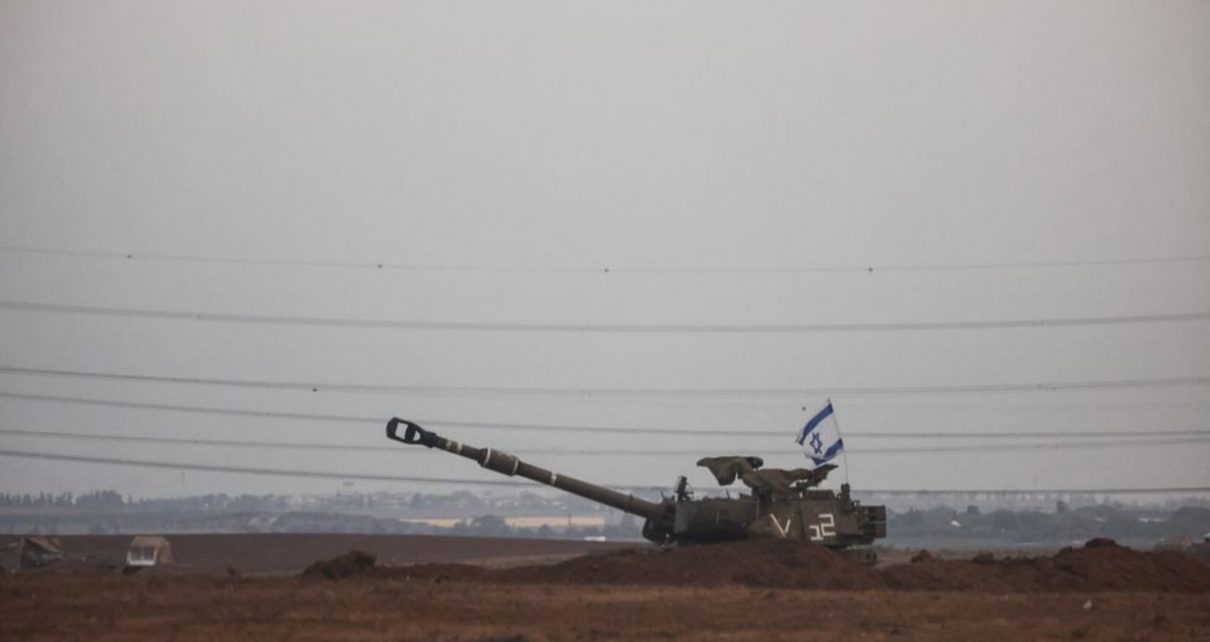The Middle East remains in turmoil as Israel intensifies its military actions, conducting air strikes in the Gaza Strip and southern Lebanon. The conflict has prompted international concern and diplomatic efforts to alleviate the crisis.
In the Gaza Strip, Israeli air strikes have primarily targetted the central and northern regions. Palestinian media reports that a house near the Jabalia refugee camp in northern Gaza was hit, resulting in casualties. These strikes come in the wake of heightened violence that has persisted for the past two weeks.
In a separate incident in the Israeli-occupied West Bank, two Palestinians lost their lives at the Jalazone refugee camp near Ramallah. The exact circumstances of this event remain unclear, as Israeli forces reportedly conducted widespread arrests in the area. Clashes erupted between Israeli forces and individuals, including gunmen and youths who threw stones.
The international community is closely monitoring the situation as fears of further escalation and the potential for a broader regional conflict loom large. Washington has issued warnings about the risk to U.S. interests in the region and has announced additional deployments of advanced air defence systems.
The Pentagon has already dispatched significant naval forces to the Middle East, including two aircraft carriers, support ships, and approximately 2,000 Marines. The goal is to deter potential attacks by Iran-affiliated groups operating in the region.
China’s Middle East special envoy, Zhai Jun, who is currently visiting the area, expressed concern about the increasing risk of a large-scale ground conflict and the spillover of conflicts throughout the region.
Iran, a key player in the Middle East, is reportedly pursuing a strategy in which proxies like Hezbollah carry out limited strikes on Israeli and U.S. targets while avoiding actions that might trigger a major escalation.
In neighbouring Syria, Israeli missiles struck Damascus and Aleppo international airports, rendering them temporarily out of service and causing casualties.
Along the northern border with Lebanon, Hezbollah, an Iran-backed group, engaged in confrontations with Israeli forces in support of Hamas, marking the most serious escalation in border violence since the Israel-Hezbollah war in 2006.
Early Monday, Israeli aircraft targeted two Hezbollah cells in Lebanon, which were allegedly planning to launch anti-tank missiles and rockets into Israel. Israel’s military also reported strikes on other Hezbollah targets.
Amidst escalating violence and security concerns, Israel expanded its evacuation contingency plan to include an additional 14 communities near the Lebanon and Syria borders.
As the conflict unfolds, Palestinian Prime Minister Mohammad Shtayyeh has called on the international community to unite and intervene to halt Israel’s attacks in Gaza, allowing much-needed humanitarian aid to reach the area. To date, the volume of aid entering Gaza has been only a fraction of what is urgently required, with supplies of food, water, medicines, and fuel dwindling.
International leaders, including U.S. President Joe Biden and Israeli Prime Minister Benjamin Netanyahu, have engaged in diplomatic efforts to address the crisis. They emphasised Israel’s right to self-defence while calling for adherence to international humanitarian law and the protection of civilians.
The situation remains highly volatile, with the potential for further escalation and broader regional consequences. International leaders continue to work together to find a path towards de-escalation and stability in the Middle East.



